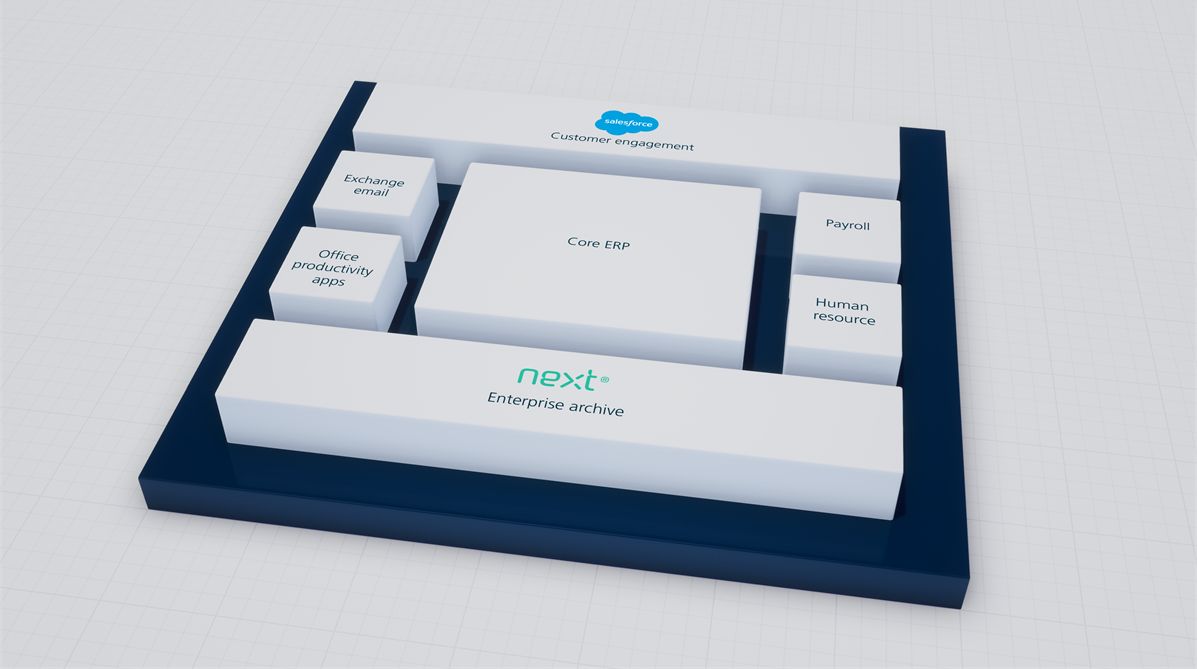Blog
8 essential factors for choosing the right Document Management System
Choosing the right Document Management System (DMS) for your organization can make a big difference in how you handle documents. To help you find the perfect fit, here’s a straightforward guide to walk you through the decision-making process.
1. Assess your needs and goals
Start by figuring out whether you need a system mainly for document storage and retrieval or for more dynamic management. If you’re focused on secure, reliable storage and easy access, look for a DMS that excels in archiving. This kind of system will keep your documents safe and easy to find, making it perfect if long-term preservation and straightforward access are your priorities.
On the other hand, if you need a system that does more than just store documents—such as supporting real-time collaboration and automating workflows—then you’ll want one with robust archiving plus features that boost team efficiency. Look for a DMS that not only secures your documents but also makes working with them easier, enhancing collaboration and streamlining processes.
2. Evaluate features
Think about how the features of a DMS align with your organization's needs. For simple storage, make sure the system has strong search functions, reliable access controls, and effective retrieval options. Features like advanced search, metadata tagging, and filtering will help your team manage and locate documents quickly.
If dynamic management is what you’re after, prioritize features that support real-time teamwork and automation. A good DMS should offer version control, automated workflows, and integrates smoothly with other tools your team uses. A user-friendly interface is key for ease of use, and robust collaboration features will help your team work more efficiently and effectively.
3. Integration and compatibility
When choosing a DMS, make sure it plays nice with the software and tools you’re already using. Whether it’s your ERP system, CRM, insurance and claims platforms, or project management tools, it’s important that everything works together smoothly.
Seamless integration ensures that information flows effortlessly between your systems, making your team's workday more efficient and hassle-free. This way, they won’t have to juggle multiple platforms or worry about data getting lost in the shuffle.
4. Scalability and future needs
Think about where your organization is headed and how it’s likely to grow. Will the DMS you’re considering be able to handle more documents and users as your team expands? It’s crucial to choose a system that can scale with your needs, so you won’t face disruptions or outgrow your solution too soon.
If you’re looking at a SaaS (Software as a Service) solution, that’s a great choice because it helps you get started quickly and easily scales as you grow. Also, make sure the supplier has a clear development roadmap. This ensures that the DMS will continue to evolve and adapt to future needs, keeping everything running smoothly even as your demands increase.
A good DMS, especially one that’s part of a well-planned SaaS offering, will grow with your organization and support your long-term success.

5. User-friendliness and training
Take a good look at how easy the DMS is to use. A system with a friendly, intuitive interface will be much easier for your team to pick up and start using right away.
Plus, check if there are training resources and solid customer support available. Having these in place means your team can get up to speed quickly and make the most of the DMS, helping everyone work more efficiently without a steep learning curve.
6. Security and compliance
Make sure the DMS you choose meets all your security needs. Look for features like encryption to protect your data, user authentication to control who can access what, and role-based access controls to keep things organized. If your industry has specific compliance requirements, such as GDPR, double-check that the DMS can handle these regulations. You want a system that keeps your information safe and helps you stay on top of any legal requirements effortlessly.

7. Vendor reputation and support
Before you settle on a Document Management System (DMS), take a bit of time to check out the vendors. See what their existing customers and partners have to say about them. A solid reputation and a proven track record in the industry are good signs that you’re making a reliable choice. Also, make sure their customer support is up to snuff. You want to know you’ll get quick help if you run into any technical issues or have questions. A great vendor will be there for you, ensuring your DMS works smoothly and efficiently.
8. Cost and value
Comparing pricing plans is definitely a smart move, but it’s not always as clear-cut as it might seem. Every organization has its own take on what’s worth the cost, and there’s no one-size-fits-all solution for DMS. So, don’t just look at the initial price—make sure to factor in ongoing fees and any potential hidden costs. It’s all about weighing the overall value you’re getting.
Think about how the DMS’s features, efficiency improvements, and long-term benefits measure up against the price. A great system will offer real value and make your investment pay off in the long run.
By following these steps, you’ll be in a great position to choose a DMS that fits your organization’s needs perfectly.
Ready to dive deeper or need a bit more help?
Feel free to reach out to us—we’re here to guide you through every step and make the process as smooth as possible.








